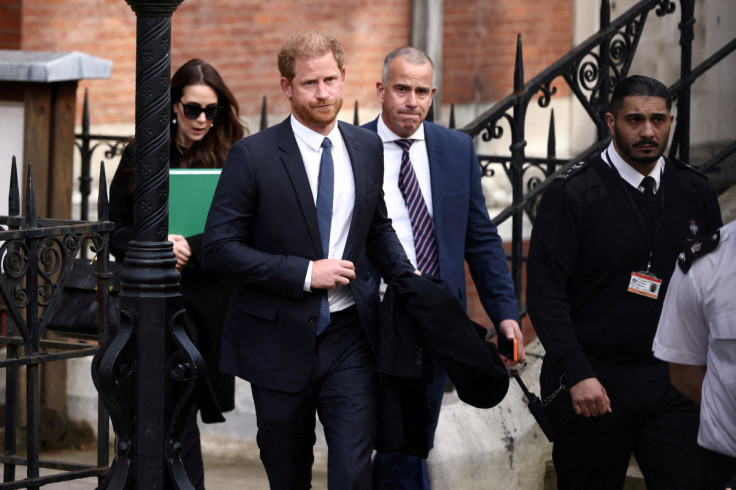UK judge dismisses Prince Harry's phone hacking case by technicality
The lawsuit will not go to trial as the Duke of Sussex filed it beyond the six-year limit.

A judge at London's High Court dismissed Prince Harry's allegations that the Rupert Murdoch-owned newspaper The Sun, and its publisher News Group Newspapers (NGN), hacked his voicemail messages. The case will not proceed to trial as it was filed too late.
Judge Timothy Fancourt ruled that the Duke of Sussex ran out of time to submit his case, which he should have done no more than six years after he first became aware he may have had a claim. But he will be able to take other allegations of illegal journalistic practices to trial, including blagging and the use of private investigators to obtain information.
The phone hacking scandal shut down sister publication News of the World in 2011 after it was proven that it hacked Prince Harry's phone, for which he received an apology. But the royal wants to prove that The Sun did too, although it has since denied the allegations.
Newsweek quoted Judge Fancourt's judgement which read: "I am satisfied that there is no reasonable prospect of the Duke proving at trial that he did not know and could not with reasonable diligence have discovered facts that would show that he had a worthwhile claim for voicemail interception in relation to each of the News of the World and The Sun."
"He already knew that in relation to the News of the World, and he could easily have found out by making basic inquiries that he was likely to have a similar claim in relation to articles published by The Sun."
Prince Harry tried to bypass the six-year limit on his phone hacking case, arguing in his witness statement that there was a "secret agreement" between Rupert Murdoch and Buckingham Palace in 2012 not to bring phone hacking claims until other lawsuits have been resolved. As evidence, he claimed his brother Prince William was also a victim of phone hacking but he received a settlement amount from the company in exchange of him "going quietly."
But Judge Fancourt dismissed the argument saying that the fact that Prince William did not file a claim in 2012 "does not indicate the existence of the secret agreement." Instead, he attributed it to Buckingham Palace being "very reluctant for senior members of the Royal Family to issue proceedings and attract publicity."
"At some stage, some kind of assurance was given by NGN that it would seek to resolve matters informally later and, following advice, it appears (if the Duke's evidence on this point is correct) that Prince William was willing to wait."
The judge said this "demonstrates that NGN was willing to settle with Prince William rather than become embroiled in litigation, as it has with the Duke." He added that Prince Harry "has not provided any evidence from those in the Palace who would have been aware of a secret agreement if there was one."
Judge Fancourt said that for all the reasons he has given, he is "unable to conclude that there is a sufficiently plausible evidential basis for the new case based on the secret agreement to justify the grant of permission to amend at a late stage of the proceedings."
A representative for NGN called the dismissal of Prince Harry's phone hacking case against NGN and The Sun "a significant victory." Echoing Judge Fancourt's ruling, the spokesperson said the judge found the duke's claims about the alleged secret agreement "not plausible or credible" arguing that it is "quite clear there was never any such agreement and it is only the Duke who has ever asserted there was." The judge then dismissed the case "on the grounds that the claim had been brought too late."
© Copyright IBTimes 2025. All rights reserved.






















